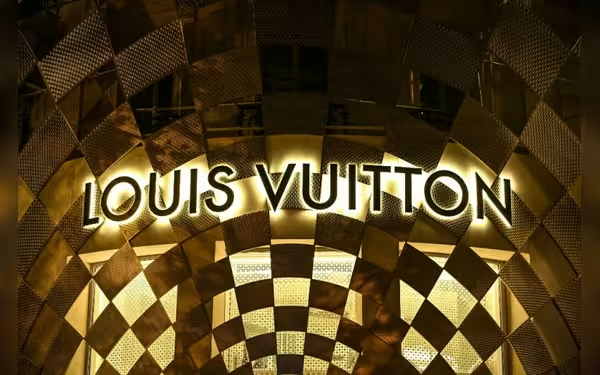Thursday, July 4, 2024 07:34 PM
Luxury brands adapt to changing Chinese consumer preferences
- China's economic recovery impacts global luxury market
- Shift in consumer behavior towards experiential luxury
- Resilience shown by LVMH, Prada, and Hermes in Chinese market
 Image Credits: brecorder
Image Credits: brecorderThe post-pandemic recovery of China's economy is reshaping the luxury fashion industry, with a focus on adapting to changing consumer preferences towards experiential luxury. Despite challenges, luxury brands like LVMH, Prada, and Hermes are showing resilience in the Chinese market, reflecting a shift in consumer sentiments and evolving dynamics of luxury consumption in China.
In the world of luxury fashion, China's economic recovery post-pandemic is closely watched as the country's spending power significantly impacts the global market. With China accounting for half of luxury sales worldwide, the recent slowdown in consumption has sent ripples through the industry.
Traditionally, wealthy Chinese consumers favored European boutiques for their high-end purchases. However, stringent travel restrictions during the pandemic halted this trend, leading to a shift in consumer behavior and preferences.
Luxury brands are now focusing on re-engaging Chinese shoppers through special events and tailored offerings. Despite challenges, some fashion houses like LVMH, Prada, and Hermes have shown resilience, with positive sales figures in the Chinese market.
Experts predict a single-digit growth in the Chinese luxury sector for 2024, reflecting changing consumer sentiments towards experiential luxury over material goods. This shift, coupled with a more cautious and value-driven approach to spending, poses challenges for luxury brands looking to navigate the evolving market landscape.
While uncertainties persist, China's substantial population of affluent individuals continues to present opportunities for luxury brands. The allure of designer products remains strong, reflecting a cultural appreciation for prestigious brands and the evolving dynamics of luxury consumption in China.













